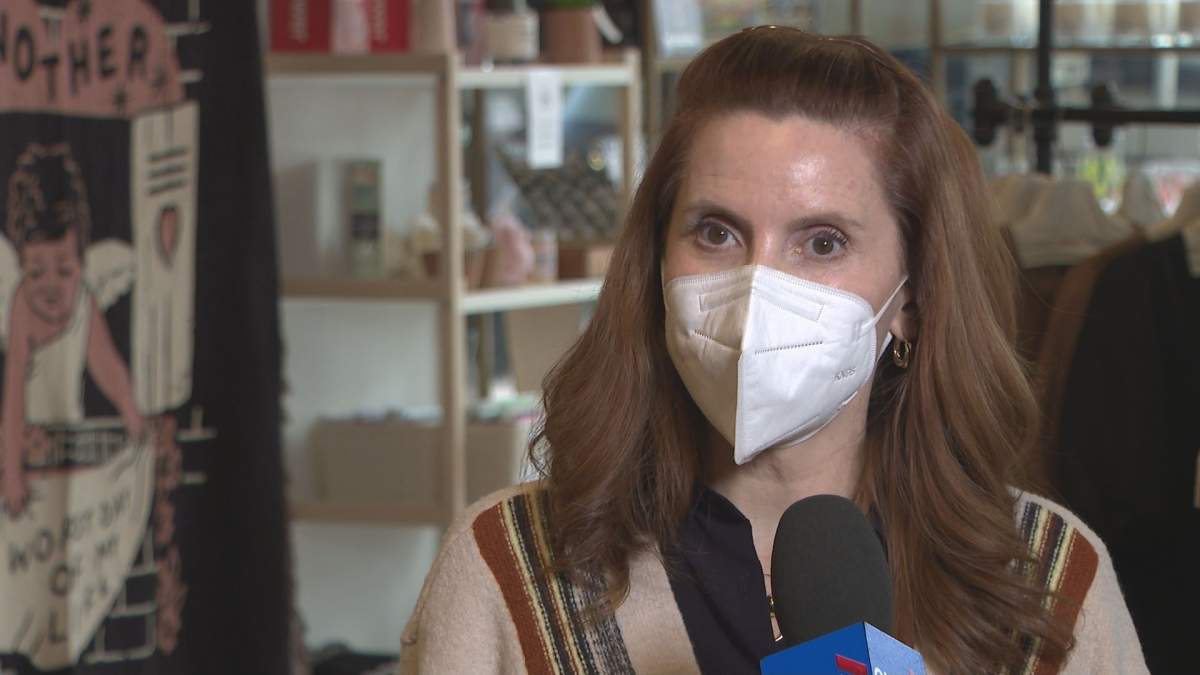There’s a sense of both optimism and frustration as Nova Scotia prepares to lift some of its COVID-19 restrictions Monday.

The owner of Biscuit General Store in Halifax says she hopes loosening the rules will help bring back some consumer confidence.
“Cautiously optimistic is kind of my catchphrase,” says store owner Wendy Friedman. “Because I want there to be a way forward, but this has been so unpredictable, I’m not going to hang my hat on anything.”
Friedman says moving retail to maximum capacity with physical distancing doesn’t make a big difference because people have been staying home.
“I don’t think this phase has a lot of changes for us,” she says.
“I would like to encourage people that, especially with locally-owned places, as opposed to big box stores, we are being responsible. We are your community, we are going to do what we need to do to keep you safe because that’s keeping us safe,” Friedman says. “We’re here every day.”
The Canadian Federation of Independent Business (CFIB) agrees consumer confidence is vital.
Its local representative says government needs to do more to encourage that confidence.
But unlike retail, bars and restaurants, gyms and museums are some of the businesses that aren’t allowed full capacity yet.
“With over 70 per cent of our members saying that they want to see a full lifting of capacity restrictions, this would have been a miss on the part of the government and public health,” says Louis-Philippe Gauthier, the CFIB’s senior director for the Atlantic chapter.

Get weekly health news
Changes Monday
As of 12:01 a.m. Monday, sports, arts and culture events can resume, with participants limited to 60 indoors and outdoors. They will be able to have practices, training, regular league games, rehearsals and performances, but tournaments will not be allowed.
Spectators will be allowed, while following the formal gathering limit, which will be 50 per cent of capacity indoors and outdoors. Gathering limits for informal events will increase to 25 from 10.
Restaurants and gyms will be able to increase their capacity to 75 per cent, retail stores can operate at full capacity and cosmetologists can resume full service.
In schools, public health measures, like classroom cohorts and not allowing non-essential visitors, will remain in place, but singing and the use of wind instruments will be able to resume.
Long-term care residents will now be able to have any two visitors at a time, rather than the same two visitors.
And all border restrictions for domestic travellers entering Nova Scotia will be lifted, with no isolation requirements or need to fill in the Nova Scotia safe check-in form. International travellers will continue to follow federal rules.
Sports excitement
But larger venues like the Scotiabank Centre and Centre 200 will be allowed 50 per cent capacity up to 3,000 people and need a designated food and drinking area.
Still, it’s exciting news for the Halifax Thunderbirds, who are currently playing two home games in Ontario due to existing Nova Scotia rules.
“It’s exciting for us,” says John Catalano, the team’s CEO. “We can’t wait to get back. The players have been asking repeatedly and just want to be back home. Playing on our home floor in front of our home fans so it’s very exciting to hear that we can come back.”
And it’s a win for local hockey teams with sports games able to resume beginning Monday.
“The coaches have done a great job keeping practices interesting, I’ve seen some brilliant things being done,” says Craig Robinson, the vice president of community engagement for the Halifax Hawks Minor Hockey Association. “But it’s not the same as playing games and everybody can’t wait to be back.”
He says they’re hoping for tournaments in Phase 2.
“It’s been a big thing that’s been missing for a number of players for a couple of years,” Robinson says. “We’re running out of time in the season as to where that might be.”
They’re also looking forward to more fans in the rink, he says.
— with files from Alex Cooke









Comments
Want to discuss? Please read our Commenting Policy first.